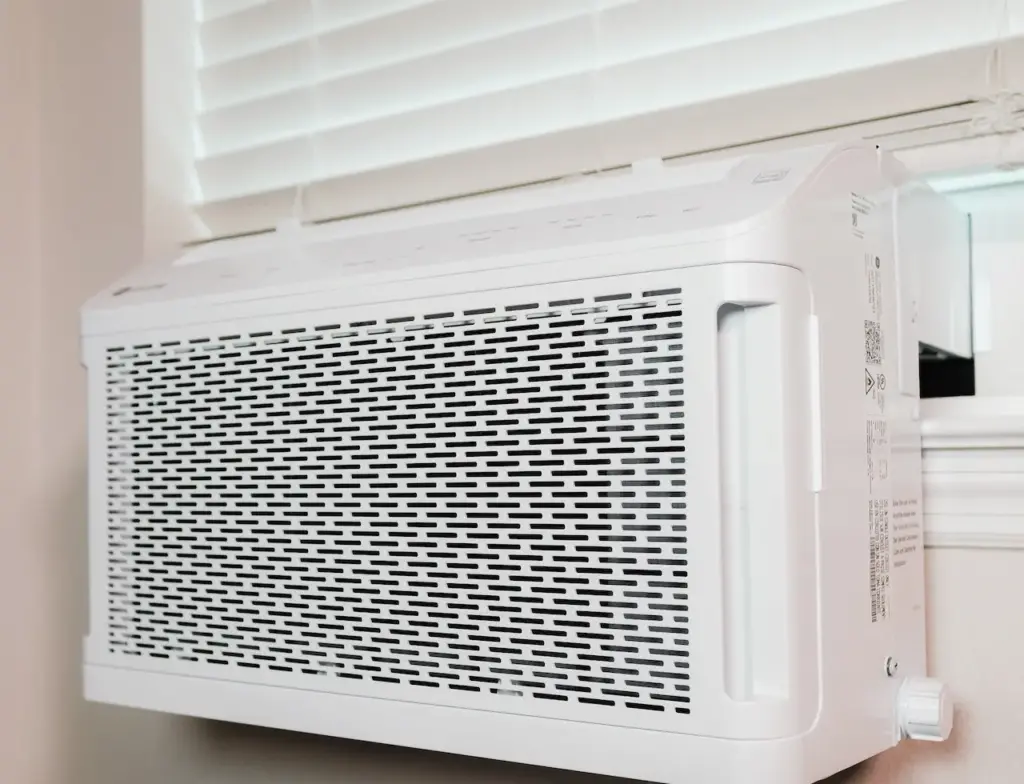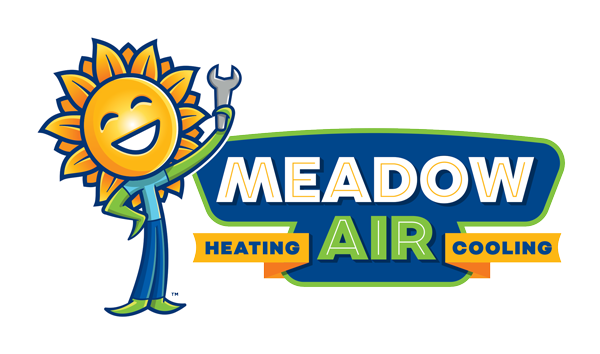How Long do AC Units Last: The Lifespan of an AC Unit

If you have an AC unit, you’ve probably wondered how long it will last. And why wouldn’t you? You’ve spent a lot of money on your unit.
In this guide, we’ll answer the question: How long does an AC unit last? and we’ll also look at what factors affect the lifespan of an AC system.
Key Points
- An AC unit can last between 10 to 15 years on average, with some units potentially failing quicker and others running effectively for longer.
- Factors that affect the lifespan of an AC unit include the quality of the unit and installation, usage, climate and location, and maintenance routine.
- Improper installation and overuse can lead to issues like frequent breakdowns, high energy bills, and reduced lifespan.
- Signs that indicate you need to replace your AC unit include it’s age, frequent repairs, noisy operation, and more.
- Regular maintenance is essential in ensuring that your AC unit stays in good shape for a long time.
Average Lifespan of an AC Unit
The lifespan of an AC unit can vary between different makes and models, but on average, a well-maintained air conditioning system can last around 10 to 15 years.
This is only an average, though, meaning some units may fail more quickly, while others may continue to run effectively for up to 20 years.
Factors That Can Affect the Lifespan of an AC Unit
As with any other type of machinery, the longevity of an AC unit depends on many factors. These include:
Quality of the AC Unit
Not all AC units are created equal. Higher quality units typically last longer than their cheaper counterparts. This is why it’s essential to invest in a reputable brand.
While you may save some money initially, cheaper units can end up costing more in the long run due to frequent repairs and a shorter lifespan.
Higher-end units are engineered to work more efficiently and reliably, which extends their longevity.
Quality of Installation
An improperly installed AC unit can lead to a number of issues, including refrigerant leaks, electric issues (which are quite hazardous), poor airflow, and more.
Besides the potential safety risks, improper installation can also cause your AC unit to operate less efficiently. This means that it will consume more energy than necessary, which can lead to higher utility bills.
Usage
Like any other home appliance, overusing your AC system can result in its components wearing out faster.
If you push your AC to run at full capacity for long periods, you’re putting it under more stress than it was designed to handle.
This can result in your AC unit breaking down more often, which means that you’ll have to spend more on repairs and that your system will not last as long as it’s supposed to.
Climate and Location
The climate and location where the AC unit is installed significantly influence how long it will last. If you live in a region with harsh weather conditions, where the unit has to work harder to maintain comfortable temperatures, it may not last as long as expected. The additional strain can lead to additional wear and tear, reducing the lifespan.
Maintenance
Many homeowners tend to have their AC unit checked only when they notice a problem, which in some cases could be too late.
A neglected unit can develop a myriad of problems, which can reduce its lifespan and increase the chances of failure.
How to Make Your AC Unit Last Longer
If you want to extend the life of your AC system, here are some practical tips you can follow.
Clean and Change the Filters Regularly
Clogged and dirty filters can restrict airflow, which forces your AC to work harder and causes it to wear out more quickly.
Depending on the type of filter and the usage, you should clean or replace filters every 1 to 3 months, or as recommended by the manufacturer.
Regularly Inspect and Maintain Ductwork
Your AC unit’s ductwork plays a vital role in delivering cool air throughout your home. Over time, ducts can accumulate dust and debris, which reduces your AC’s efficiency.
Leaks in ductwork can also lead to a significant loss of cool air. To extend your unit’s lifespan, make sure the ducts are cleaned regularly and fix any leaks immediately.
Avoid Blocking Vents
Blocked vents or registers can lead to reduced airflow, making your AC work harder and shortening its lifespan.
Make sure that furniture, curtains, or other household items are not obstructing your vents, to allow for proper airflow and maintain an efficient cooling system.
Keep the Outdoor Unit Clear and Clean
Ensure that your outdoor unit has enough space around it to allow proper airflow. Regularly remove any leaves, debris, or dirt that has accumulated around the unit and cut back any vegetation.
This can help prevent dirt and dust from being pulled into the unit and ensure efficient airflow.
Properly Set the Thermostat
One way to reduce the strain on your AC unit is by setting the thermostat to a reasonable temperature.
Continuously running the unit at extremely low temperatures will not only result in higher energy bills, but also put unnecessary stress on the system, leading to premature wear.
Instead, aim for a setting that maintains a comfortable temperature while not overworking the AC unit.
Insulate Your Home
A well-insulated home goes a long way in improving the lifespan of your AC unit. Better insulation means that less heat enters the home in summer, reducing the workload on your AC system.
Inspect your home to ensure doors and windows are properly sealed, and add insulation to walls and attics as needed.
Other options like energy-efficient windows, blinds, or shade screens can also help keep your indoor temperature more stable.
Upgrade to a Smart Thermostat
Upgrading to a smart thermostat is a great way to manage your AC usage more efficiently, ultimately extending its lifespan.
Smart thermostats can be programmed to adjust the temperature based on when you’re home or away, minimizing the amount of time your AC has to run at full capacity.
Invest in a Maintenance Plan
Professional maintenance services are invaluable when it comes to prolonging the life of your AC unit.
Under a maintenance plan, technicians conduct scheduled annual or bi-annual checks, to ensure the system is operating at peak efficiency.
This helps prevent unexpected breakdowns and catches any potential problems before they become serious and costly.
Signs Your AC Unit Needs Replacement
Although regular maintenance and repair can extend the life of your air conditioning system, it won’t last forever. Here are signs that indicate your AC unit might be on its last legs and require replacement:
Age of the Unit
Air conditioners typically have a lifespan of 10 to 15 years. If your AC is older than this age range or even approaching it, you might want to consider getting a new one. Often, older units lack energy efficiency and require frequent repairs, making it more economical in the long run to replace them.
Increasing Energy Bills
If you’ve noticed a significant and sudden increase in your energy bills, your air conditioning unit may have lost its efficiency.
As a unit ages, it has to work harder and for longer periods to produce the same amount of cooling. This strenuous operation results in higher energy consumption, leading to an increase in your utility bills.
Frequent Repairs
If your AC unit requires frequent repairs, it’s often more cost-effective to replace it than to keep fixing it. Apart from the expense, recurring issues can be inconvenient, especially during the summer months when you depend heavily on your cooling system.
Inconsistent Temperature
If you’re experiencing hot and cold spots throughout your home, or if your system struggles to maintain a set temperature, it’s an indication of a potential serious problem.
This can be due to issues with the AC’s compressor, a faulty thermostat, or an aging unit struggling to function optimally.
Noisy Operation
While some noise is typical during the operation of the AC, loud grinding, squealing, or rattling noises aren’t normal.
These sounds can indicate serious internal issues, like a broken motor or a failing compressor. If servicing doesn’t solve the problem, replacement might be the most viable option.
Excessive Humidity
Your air conditioner plays an important role in maintaining ideal humidity levels in your home. If you notice moisture accumulation on windows, a muggy feeling, or other signs of excessive humidity, it’s possible your AC isn’t functioning correctly and may need to be replaced.
Deteriorating Air Quality
If you notice a decline in your home’s air quality, it could be a sign of a failing AC system. An aging or broken system may fail to filter out pollutants and allergens, negatively impacting the air quality.
Leaks or Freeze-Ups
If your AC system is leaking refrigerant or if ice is forming on the coils, it’s a clear indication of serious trouble. Leaks can cause a loss of cooling efficiency, and repeated freeze-ups can cause lasting damage to your unit.
System Constantly Running
If your AC unit is running constantly or turning off and on more frequently than usual, consider this a red flag. This could signify serious underlying problems, such as incorrect sizing or a failing compressor.
Maximize Your AC’s Lifespan with Meadow Air
Although AC units are built to last up to 20 years, it comes down to how well you treat your unit. If you want your unit to last longer, make sure you have it serviced and maintained by a professional.
Don’t wait until it’s too late, optimize your AC’s lifespan now with Meadow Air. Schedule Your Service Appointment Today!
Frequently Asked Questions
Should I Replace a 20 Year Old AC Unit?
Yes, you should consider replacing a 20-year-old AC unit. Older units are less energy efficient than newer models, leading to higher energy bills and more frequent breakdowns.
Can an AC Unit Last 30 Years?
While some central air conditioner units can last up to 30 years, especially geothermal AC systems, it is less common for conventional units.
Should I Replace Both AC Units at the Same Time?
It depends on the condition and age of both units. If both units are nearing the end of their lifespans, replacing them simultaneously may be more time and cost-efficient. By doing this, you can avoid paying for multiple installations and ensure that both units function optimally.
How Much Does an Air Conditioner Cost?
The cost of an AC depends on several factors, including the type of air conditioning unit, size of the unit, energy efficiency, installation complexity, brand, and additional features.
Different air conditioning systems come with varying price points, and the cooling capacity required for your space will impact the cost.
What you need to keep in mind is that energy-efficient models may have higher upfront costs, but they save money in the long run.
Is It Worth Repairing a 10 Year Old Air Conditioner?
The decision to repair a 10-year-old air conditioner depends on the specific issues, the cost of repairs, and the overall condition of the system.
If the system still works efficiently and the repairs are minor, it may be worth repairing it. However, if the repair costs are significant, it might be more cost-effective to invest in a new, energy-efficient unit.
